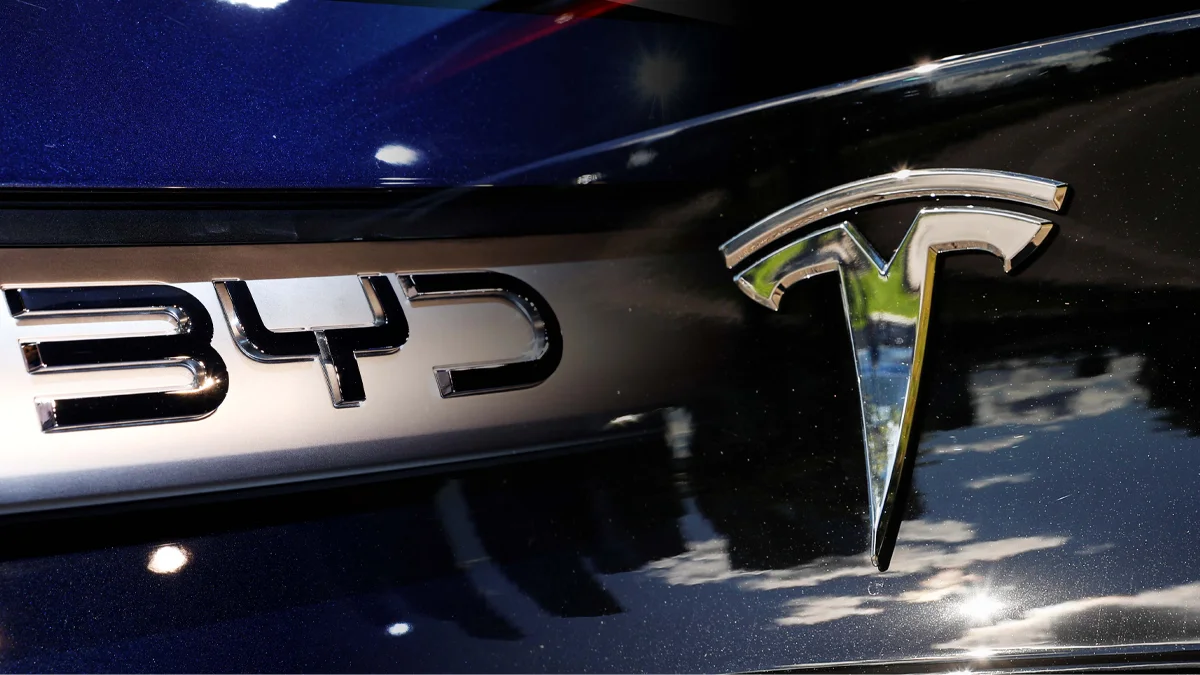Necessary Always Active
Necessary cookies are required to enable the basic features of this site, such as providing secure log-in or adjusting your consent preferences. These cookies do not store any personally identifiable data.
|
||||||
|
||||||
|
||||||
|

India is making bold moves in the electric vehicle (EV) sector. Recently, India rejected BYD’s proposal, signaling a shift in its approach toward foreign EV investments. While China’s BYD, one of the largest EV manufacturers in the world, faced roadblocks in entering the Indian market, the government is now actively encouraging Tesla to invest in India.
MSN reported that India’s Trade minister, Piyush Goyal said that BYD’s entry will be restricted in the Indian market as the country is expecting investments from Elon Musk’s Tesla. He said, “India has to be cautious about its strategic interests, who we allow to invest. As of now it is a no to BYD, he told Bloomberg Television’s Haslinda Amin at the India Global Forum in Mumbai.”
China’s EV giant BYD had ambitious plans to expand its presence in India. However, the Indian government has taken a firm stance, making it clear that India says “no” to BYD by rejecting its proposal for a $1 billion investment. The decision was reportedly driven by concerns over national security and the growing need to regulate Chinese investments in critical sectors.
BYD, which has already introduced electric models in India, aimed to establish a large-scale manufacturing facility in partnership with Megha Engineering. However, India’s policies on foreign direct investment, especially from China, have become stricter in recent years. The government is cautious about allowing Chinese firms to have significant control over key industries, including the EV market.
With BYD facing obstacles, the spotlight has now shifted to Tesla vs BYD in India. Tesla is in discussions with Indian officials to establish a manufacturing plant in the country. Unlike BYD, Tesla’s entry is being welcomed with open arms, as India sees the American EV giant as a valuable partner for its long-term electrification goals.
Tesla has shown interest in setting up a facility to produce affordable electric vehicles tailored for the Indian market. The company has also engaged with the Indian government to negotiate tax breaks and incentives for local production. This marks a significant shift in how India is positioning itself as a major EV manufacturing hub while selectively approving foreign investments.
The contrasting treatment of BYD and Tesla reflects India’s policy on foreign EVs. The government is adopting a cautious yet strategic approach when it comes to allowing foreign companies to invest in the Indian market.
With Tesla investment in India gaining momentum, the country is gearing up to become a key player in the global EV market. Tesla’s entry could not only bring advanced technology but also generate jobs and boost the local supply chain. While BYD faces regulatory roadblocks, Tesla is in a strong position to shape the future of India’s electric mobility landscape.
By rejecting BYD and being in talks with Tesla, India is making a strategic bet on its EV future—one that aligns with its long-term economic and geopolitical interests.